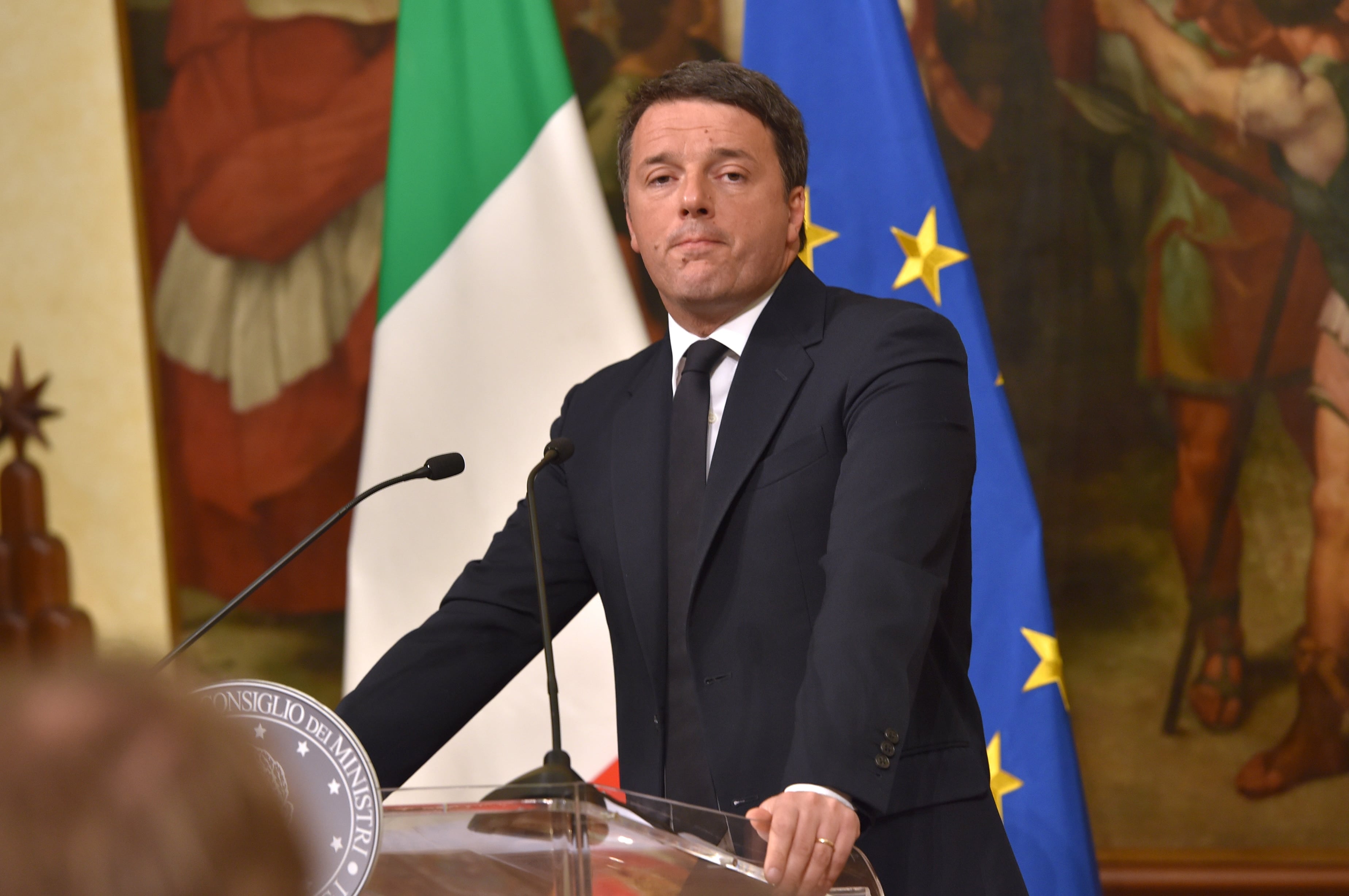ROME — The resignation of Italy's prime minister and the pending appointment of a caretaker government in Rome is likely to freeze Italian defense initiatives for months, analysts have warned, affecting Italy's input on key policies like European Union defense and Libya.
Prime Minister Matteo Renzi resigned Wednesday after 59 percent of Italians voted down his plans for constitutional reform at a Dec. 4 referendum. The 41-year-old leader had placed the reform — which he said would speed up lawmaking — at the center of his legislative agenda, and promised to step down if he lost the referendum.
Over the weekend, Italian President Sergio Mattarella is set to hold meetings with party leaders to decide on the appointment of a caretaker government, which can run Italy until fresh general elections are held.
Those elections will not be held until Italy's constitutional court rules on the legitimacy of the country's new electoral law on Jan. 24, prompting observers to suggest a springtime election.
In the meantime, Italy is at the center of evolving talks about building an EU defense capability and about trying to restore peace in Libya, from where thousands of migrants are sailing to reach Europe.
Rome is also involved in operations against the Islamic State group in Iraq.
Analysts, however, warned that a new Italian caretaker government would be focused on passing the new electoral law.
"Defense will not be an important issue in this coming period," said Vincenzo Camporini, vice president and security and defense analyst with the Istituto Affari Internazionali (IAI) think tank in Rome.
"The situation will be frozen," said Andrea Margelletti, the head of the Rome-based think tank Centro Studi Internazionali. "We may have a government without strategies."
If the outgoing prime minister declines a request from the president to form a new government, Mattarella may appoint another member of Renzi’s center-left Democratic Party as prime minister, given that the party has a majority in Parliament. Candidates include current Foreign Minister Paolo Gentiloni and Finance Minister Pier Carlo Padoan.
A decision may be made on Dec. 11 or 12.
"The majority in Parliament is not changing, so policies won’t shift, but we can expect Italian decision-making to be weaker — bold decisions will not be taken," said Stefano Silvestri, a former head of the IAI think tank.
"If we have to buy two more F-35s, I assume we will, but if there is a firm decision to be made on the EU’s defense capability, I am not sure," Margelletti offered.
The analyst was also dubious about defense spending being supported if Padoan took over. "Having an economist as prime minister is never good for defense," he said.
Italy, France and Germany have been prime movers this year in the revival of the EU Battle Groups concept, which was long held back by the UK, until the UK opted to leave the EU earlier this year.
On Nov. 30, the EU unveiled ambitious plans to built its military capabilities with a €500 million (US $536 million) annual research and development budget by 2020 and a pooled €5 billion procurement budget.
Italy has also backed the fledgling UN-supported government in Libya, which appears to be losing influence as fighting returns to the capital Tripoli. Restoring law and order to Libya will be key to reducing the flow of migrants sailing from the country’s shores to Italy.
This year, about 173,000 have made the journey, up 20 percent on last year. The Italian Navy is now training 78 Libyan future coast guard officials to patrol Libyan coasts and stop migrants from sailing.
In the short term, traffickers have reportedly being telling migrants to sail as soon possible because "the Libyan coast guard is coming and they will send you back."
Should the Italian caretaker government be led by a member of the Democratic Party, there is the possibility that current ministers, including Defense Minister Roberta Pinotti, will remain at their posts, said a Democratic Party source.
"President Mattarella prizes continuity, and given that we have a G7 conference coming up and a new US president, he may not want to change ministers for what will be a brief administration," the source said.
Another variable is the reappointment of Mauro Moretti as CEO of Leonardo-Finmeccanica when his mandate as head of the state-controlled defense group expires in April.
Moretti was appointed by Renzi in 2014.
"With a strong Renzi, Moretti could have been reappointed. Without a strong Renzi, it’s another game," said Margelletti. "On the other hand, a temporary prime minister might not wish to switch CEOs of state-controlled companies and reconfirm."
What follows the next election is less certain.
The campaign against Renzi at the referendum was led by Italy’s anti-establishment Five Star political movement, which currently sits in second place in the polls, close behind the Democratic Party.
Considered part of the global anti-establishment trend that led to the election of Donald Trump for US president, the Five Star party is pushing for a referendum on Italy dropping the euro currency, a move which could spell the end for the euro and seriously damage the cohesion of the EU.
The party also has a pro-Russia policy, common to other populist parties. Senior official Alessandro Di Battista has backed Russia’s intervention in Syria in defense of "legitimate" Syrian President Bashar Assad.
Tom Kington is the Italy correspondent for Defense News.








